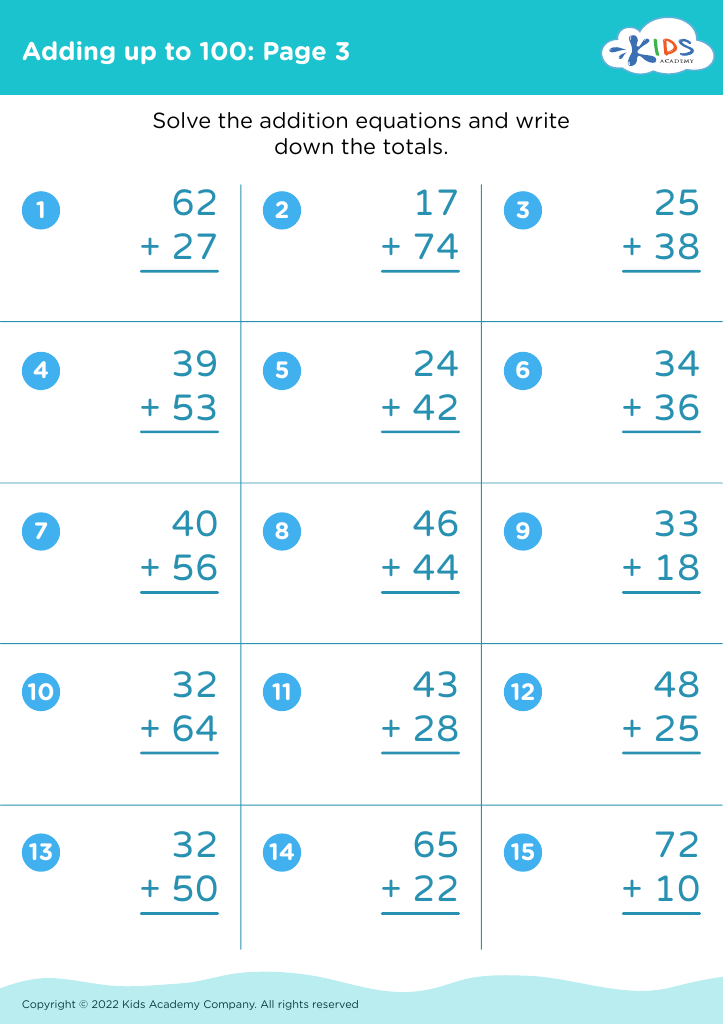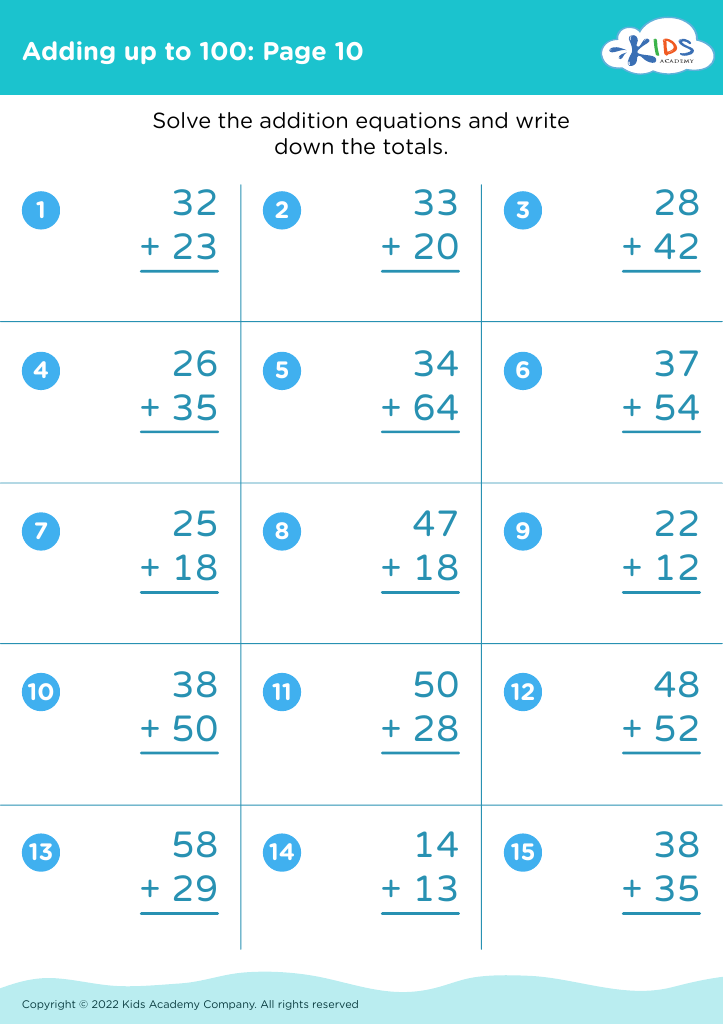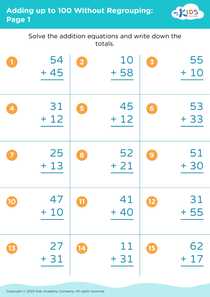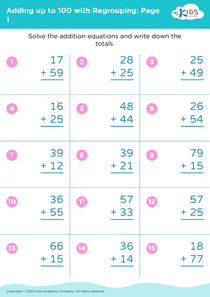Reading comprehension Adding up to 100 Misc Worksheets for Ages 4-7
3 filtered results
-
From - To
Unlock the world of reading comprehension with our "Adding up to 100 Misc Worksheets" designed for children ages 4-7. These engaging worksheets combine math concepts with reading skills, ensuring a holistic learning experience. Young learners will enjoy various activities that challenge their understanding while enhancing their ability to interpret texts, follow instructions, and solve problems involving numbers up to 100. With fun illustrations and age-appropriate content, these worksheets promote critical thinking and boost confidence. Perfect for homeschooling or classroom use, they are an effective tool for developing essential literacy and numeracy skills in an interactive, enjoyable way. Start your child's learning adventure today!
Reading comprehension is a crucial skill for children aged 4-7, forming the foundation for their future learning and success. Parents and teachers should care about it for several reasons. Firstly, strong reading comprehension enhances overall academic performance. When children understand what they read, they can better engage with subjects across the curriculum, leading to improved grades and a love for learning.
Additionally, reading comprehension fosters critical thinking skills. Children learn to analyze text, ask questions, and make connections. This practice enables them to draw inferences and develop their own opinions, which are essential skills for navigating the complexities of life.
Furthermore, comprehension correlates with social-emotional development. Understanding stories helps children relate to characters and explore different perspectives, enhancing empathy and communication skills.
By investing in reading comprehension, parents and teachers also instill a lifelong appreciation for reading, which is vital for ongoing education and personal growth. Programs focused on comprehension can also encourage family engagement, as parents participate in shared reading activities at home.
In conclusion, prioritizing reading comprehension for children aged 4-7 supports their academic, cognitive, and socio-emotional development, setting them up for a successful future.

















